This blog examines the findings from our recent report The Influence of headteachers on their schools, published in partnership with Newcastle University Business School and funded by the Nuffield Foundation.
Headteachers in England are often held responsible by the accountability system for improving pupils’ academic performance. The independence that many headteachers have in the UK gives them the flexibility to succeed; however, this flexibility does not necessarily translate into better outcomes. Analysis in our recent report provides the first quantitative evidence of the impact effective headteachers have on pupils’ performance in UK schools. We analysed national data on pupils and headteachers in England between 2004 and 2019, following 22,300 primary and 5,400 secondary headteachers, to find out how much of an impact headteachers have on their schools.
Effective headteachers increase pupils’ performance and their future earnings
We found that pupils under the most effective headteachers are up to three months ahead in their academic progress, compared to pupils in schools led by struggling headteachers. That is equivalent to one extra GCSE grade in two subjects, which translates into an additional £16,000 in their lifetime earnings. If sufficiently effective training is available for those struggling headteacher, it might be a cost-effective way of improving school performance.
The least effective headteachers are concentrated in low-attaining schools
Schools can struggle for many reasons and one of those is inadequate leadership. For schools in difficult circumstances, it is particularly important to have a highly effective headteacher, which is why it is so concerning that we found struggling schools to disproportionately attract struggling headteachers. This distribution of headteachers, where the most effective heads are concentrated in high-performing schools and least effective heads in low-performing schools, might be contributing to widening of the disadvantage gap in England.
Figure 1. Less effective headteachers are concentrated in low-attaining schools
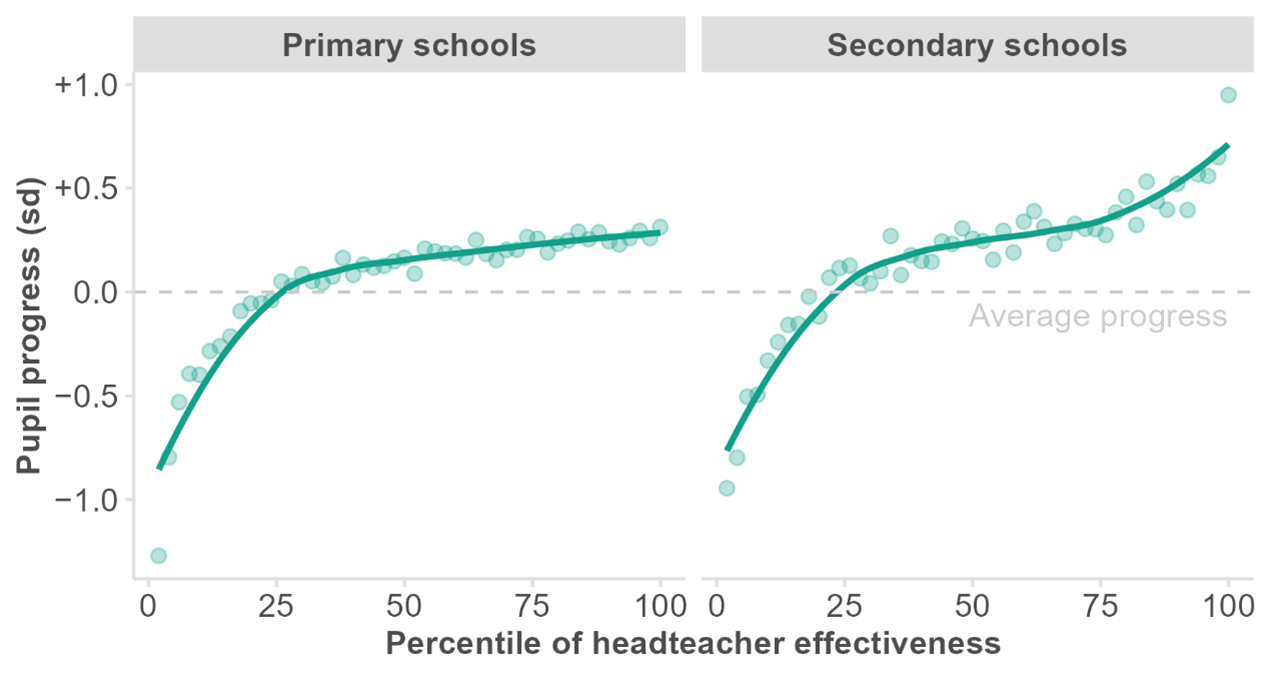
A substantial number of teachers leave schools with less effective headteachers
Our results also show the deleterious impact that the least effective headteachers have on the schools they lead: staff turnover significantly increases in schools led by less effective headteachers, and staff absences rise. This is consistent with other research that finds only 40 per cent of teachers in schools with poor leadership and management are satisfied with their jobs. Building the skills of those struggling heads may also have the potential to mitigate the current teacher retention crisis.
Figure 2. Turnover is higher in schools with less effective headteachers
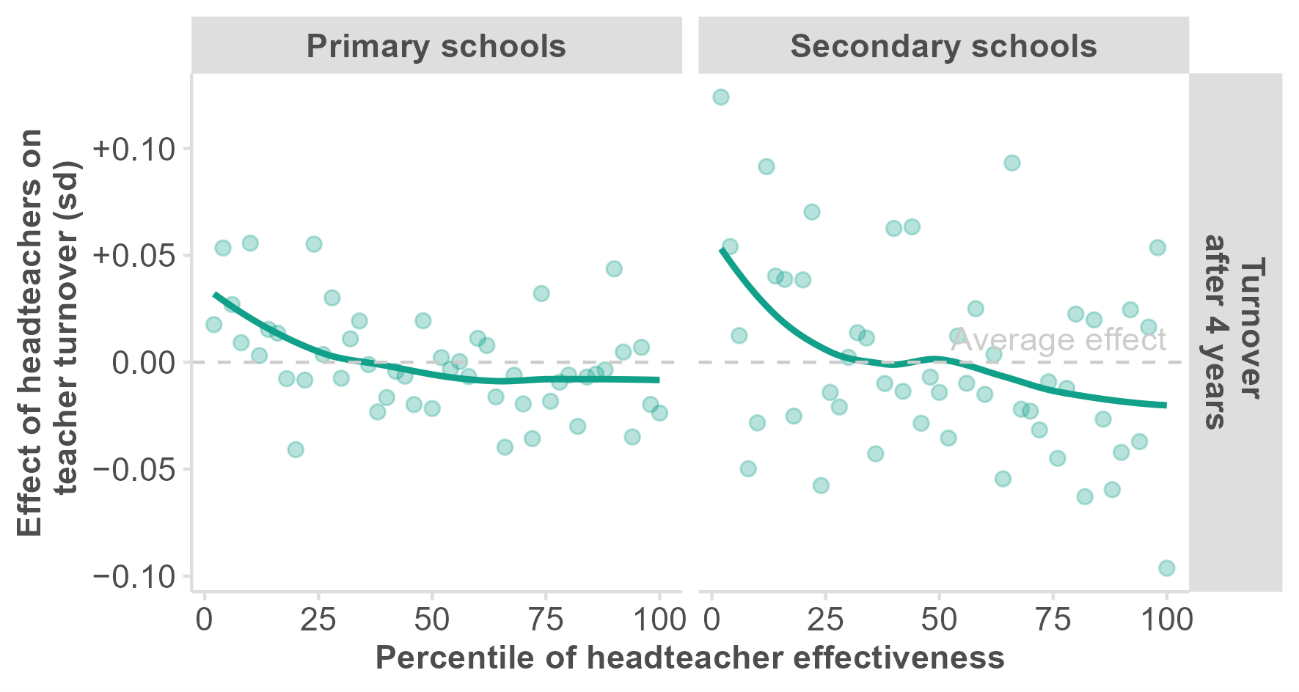
Effective headteachers receive a small pay premium
Despite the benefits that highly effective headteachers bring to their schools, they only earn, on average, an extra £2,700 each year in primary schools, and £5,400 in secondary schools, compared to the least effective headteachers. There is a high cost associated with losing experienced and effective headteachers from the profession, so it is surprising that schools are not using their discretion over pay to do more to retain the best headteachers. It is unclear whether that is because of budget constraints, difficulty in identifying the effectiveness of heads, or a reluctance to use financial incentives for retention.
Figure 3. Effective headteachers earn slightly more
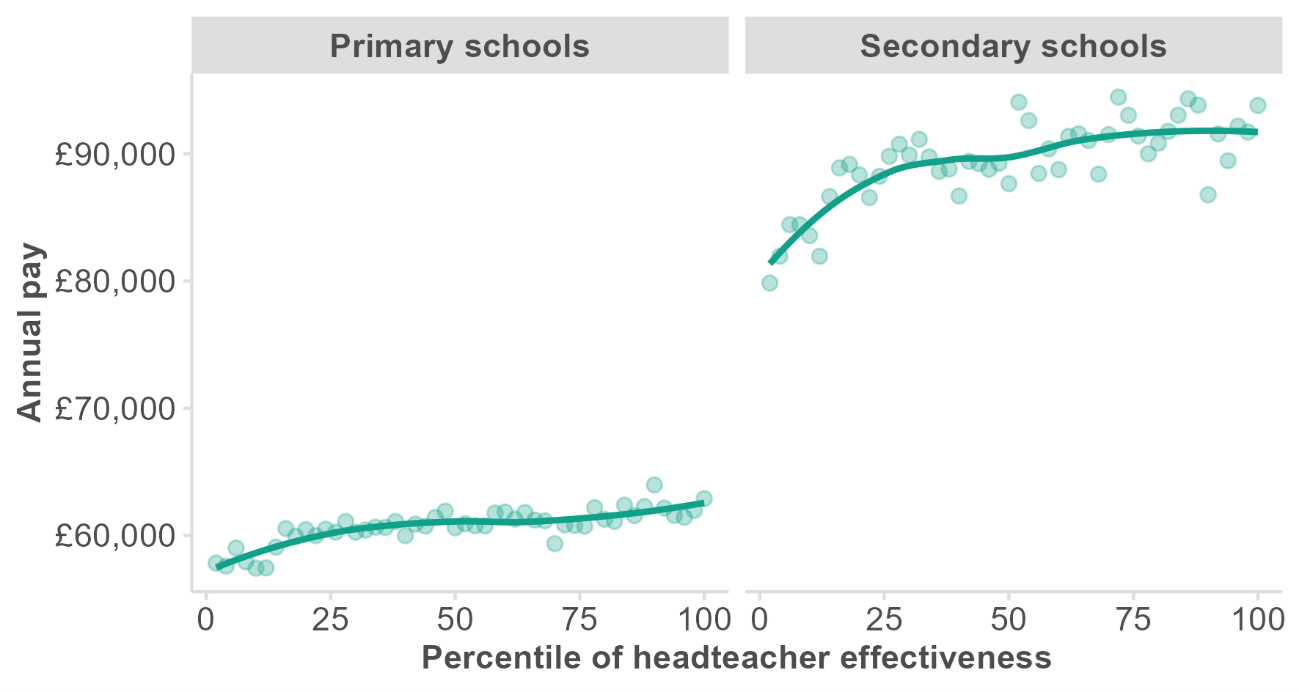
Headteacher effectiveness increases with tenure
Our analysis revealed that headteachers who spend more time at a school tend to be more effective. Specifically, five more years in the same school is equivalent to two months of additional progress for primary schools, and an increase of a grade in two GCSEs and two additional months of progress for secondary schools. This suggests that it might take years to observe positive results in pupils’ outcomes after hiring a new headteacher.
Figure 4. Headteachers’ effectiveness increases as they spend more years in the school
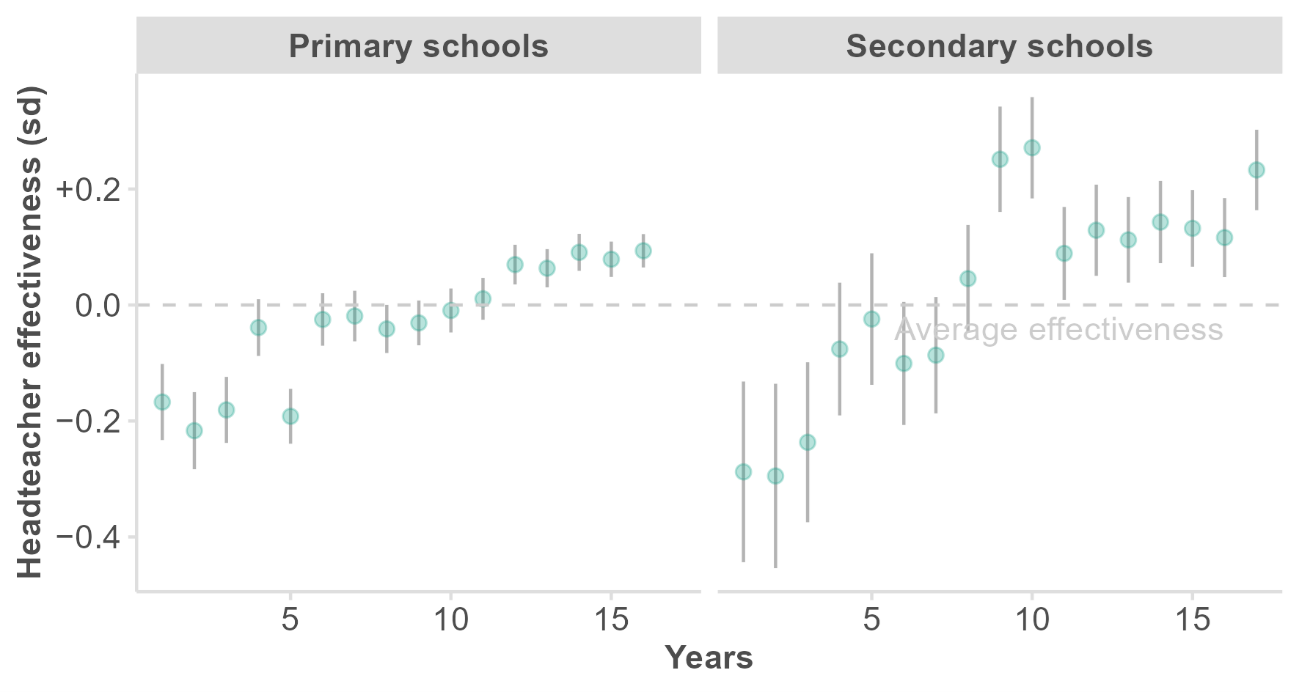
Conclusion
Headteachers are an important conduit for school improvement —they have the potential to increase pupils’ academic outcomes and keep their teaching staff motivated. Our results indicate that is worthwhile to invest in leadership improvement given the benefits that it brings. Effective policy measures would focus on encouraging the most effective headteachers to work in the most challenging schools, and on setting up a robust system of support for new and struggling headteachers.
You can read our recent the report The Influence of Headteachers on their schools in full here:
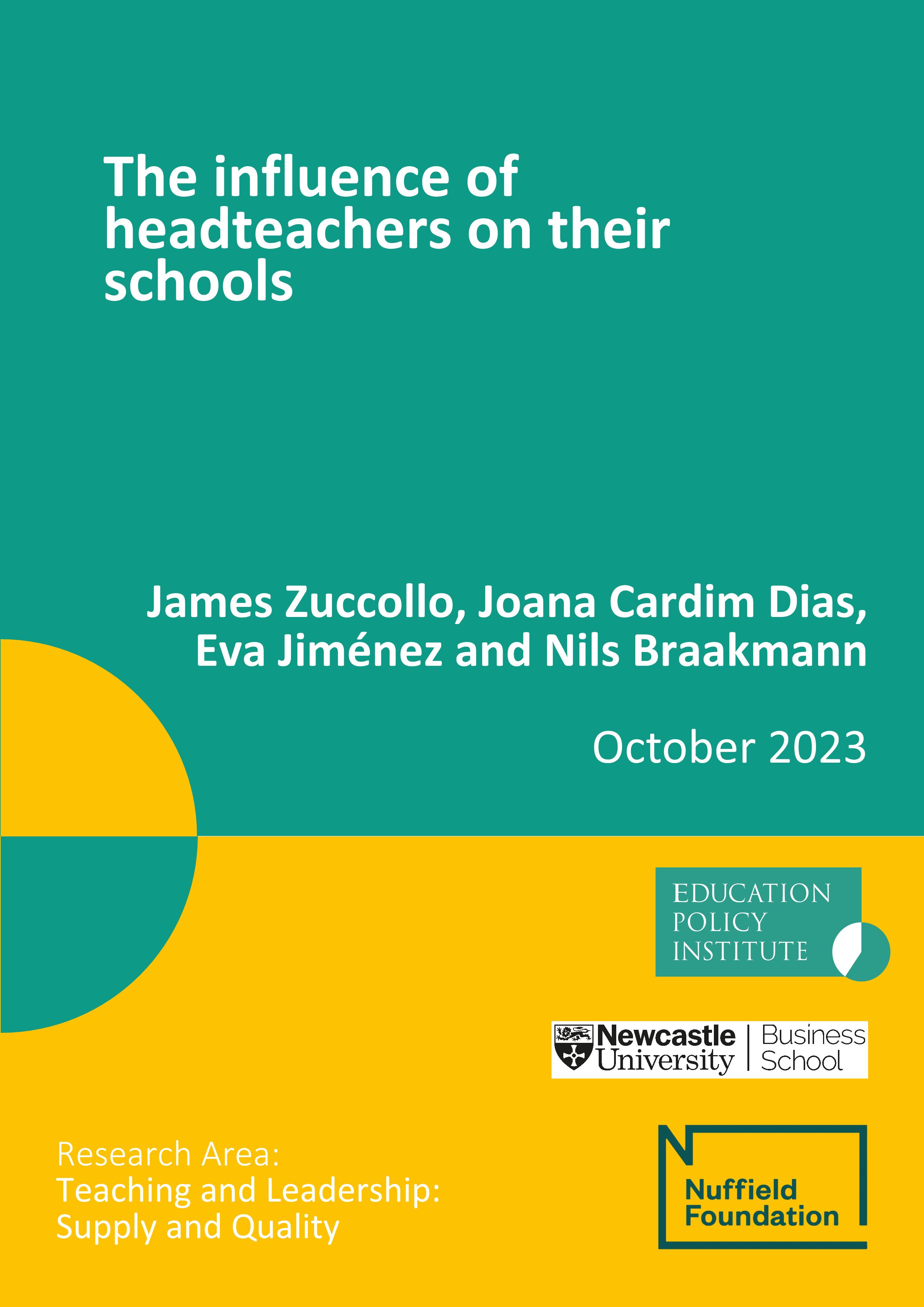

This report has been kindly funded by the Nuffield Foundation.
The Nuffield Foundation is an independent charitable trust with a mission to advance social well-being. It funds research that informs social policy, primarily in Education, Welfare, and Justice. The Nuffield Foundation is the founder and co-founder of the Nuffield Council on Bioethics, the Ada Lovelace Institute and the Nuffield Family Justice Observatory. The Foundation has funded this project, but the views expressed are those of the authors and not necessarily the Foundation. Website: www.nuffieldfoundation.org Twitter: @NuffieldFound

Newcastle University Business School know that the world of business is changing because they are driving that change. Their world-leading research explores issues facing the future of work, and solves them. This is reflected in students’ education and inspires excellence through their teaching. The School are leading the way on leadership, shaping and creating business leaders of the future. They aspire to create a more just, inclusive and prosperous global society. As a ‘triple-crown’ accredited business school, they are one of an elite group of schools. Newcastle University Business School are proud of their place among these global institutions. Website: https://www.ncl.ac.uk/business/ Twitter: @NCLBusiness
